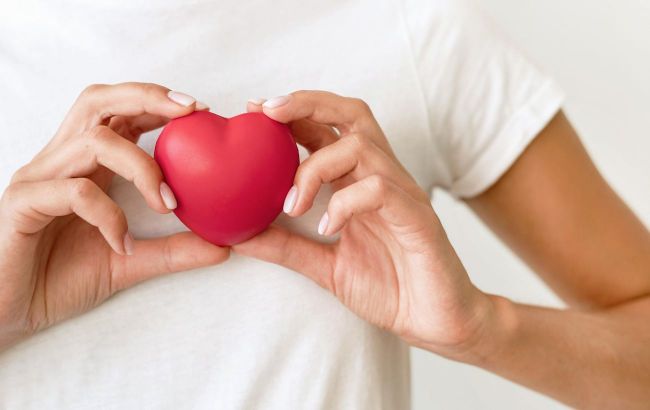Warning signs of silent heart issues: Stay attentive to these symptoms
 What signs indicate heart problems (Photo: freepik.com)
What signs indicate heart problems (Photo: freepik.com)
Heart diseases can go unnoticed for a long time due to mild symptoms or signs that may seem unrelated to the cardiovascular system. It is important to pay close attention to one's health and seek medical advice if there are suspicious symptoms. WebMD provides information on the signs that may indicate hidden heart problems.
Apnea during sleep
When your snoring is interrupted by pauses in breathing, it's possible that your brain isn't receiving enough oxygen. It will send signals to your blood vessels and heart to work harder to maintain blood flow. This increases the risk of high blood pressure, irregular heart rhythms, strokes, and heart failure. Fortunately, sleep apnea can be treated.
Bumpy rash
An extremely high level of triglycerides can lead to the appearance of cracks or yellow-orange rash on the skin around the joints of the fingers and toes, as well as on the buttocks. Many of these fats in your blood may play a role in strengthening arteries, and a large amount of them is often associated with other conditions that also put you at risk of heart disease and strokes.
Poor grip strength
The strength of your grip can tell you something about the strength of your heart. Studies show that the ability to grip well can be associated with a lower risk of cardiovascular disease. If you have difficulty grasping an object, the likelihood of developing or having problems is higher. (However, improving grip strength itself does not necessarily make your heart healthier.)
Dark spots under the nails
If you haven't recently injured or hit your fingers or toes, small blood spots that appear under the nails may indicate an infection of the heart or valves called endocarditis. You can also get these blood spots when you have diabetes, and people with this condition are two to four times more likely to suffer from cardiovascular diseases and strokes.
Dizziness
Dizziness is often a direct result of heart problems, as the heart may not pump enough blood to the brain. Dizziness can be a symptom of a rhythm disturbance called arrhythmia. Heart failure, that is the weakening of the muscles, can make you unsteady. The feeling of dizziness is also one of many lesser-known symptoms of a heart attack.
Sexual problems
Some bedroom issues may indicate that you have heart disease and an increased risk of a heart attack or stroke. Men with erectile dysfunction may have circulation problems related to high blood pressure or narrowed arteries due to cholesterol buildup. These blood flow issues can also reduce a woman's libido and her ability to derive pleasure from sex.
Change in skin color
Blue or gray fingers of hands and feet can result from poor circulation of oxygen-rich blood, often due to a heart defect you were born with, or the narrowing or blockage of blood vessels. Lacy, mottled, purplish patterns may appear when pieces of cholesterol plaques break off and then get stuck in tiny blood vessels. With endocarditis, bloody spots may appear just under the skin on the inner sides of the arms and soles of the feet.
Bleeding gums
Experts don't fully understand the connection between gum diseases and heart diseases. But research shows that bleeding, swelling, or painful gums can lead to heart problems. One theory is that bacteria from the gums enter the bloodstream and cause inflammation in the heart. Gum disease, which can lead to tooth loss, can also increase the risk of a stroke.
Dark and velvety spots on the skin
You may find these thickened spots, called acanthosis nigricans, in folds and creases of the skin, such as the neck, armpits, and groin, when your body has trouble using the hormone insulin. The patches may have skin tags. If you're not treating insulin resistance, metabolic syndrome, or type 2 diabetes, see a doctor for blood sugar control and heart protection.
Trouble breathing
Shortness of breath can be a symptom of heart failure, a disturbance of the heart rhythm, or a heart attack. Inform your doctor if you find it difficult to breathe after performing activities that were previously easy for you, or if you have difficulty breathing lying down.
Swelling of the ankles
This happens when you stand or sit for a long time, and is also common during pregnancy. Fluid accumulation can also be caused by heart failure and poor blood circulation in the legs. Swollen legs can be caused by a clot that blocks the return of blood from the lower limbs to the heart. Call your doctor immediately if swelling occurs suddenly.
Fatigue
Don't always attribute it to poor sleep. Heart failure can lead to fatigue and muscle exhaustion, as the muscles stop working well enough to meet the needs of your body. Also, watch for other symptoms such as cough and swelling, as feelings of emptiness and weakness can be a warning sign of many conditions, including anemia, cancer, or even depression.
Earlier, we wrote about how to reduce high blood pressure without medication.
And we also talked about whether it's possible to suppress yawns.
This material is for informational purposes only and should not be used for medical diagnosis or self-treatment. Our goal is to provide readers with accurate information about symptoms, causes, and methods of detecting diseases. RBС-Ukraine is not responsible for any diagnoses that readers may make based on materials from the resource. We do not recommend self-treatment and advise consulting a doctor in case of any health concerns.

